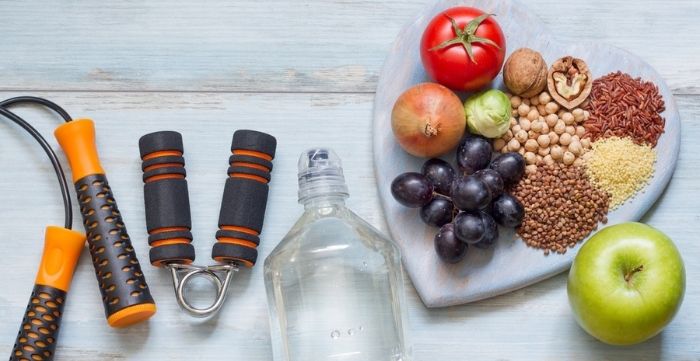 Self-care is a hot topic in healthcare — and rightfully so considering the constant increase in physician burnout. Even being aware of the issue, though, physicians often experience a drop in empathy levels before they’ve even finished their third-year clinical rotations due to a de-emphasis on (or total lack of) self-care.
Self-care is a hot topic in healthcare — and rightfully so considering the constant increase in physician burnout. Even being aware of the issue, though, physicians often experience a drop in empathy levels before they’ve even finished their third-year clinical rotations due to a de-emphasis on (or total lack of) self-care.
As a physician, you’re likely in this boat and far better at prescribing advice than you are at following it. While this is understandable, it can result in a lot of serious issues for you, your patients, your colleagues and the healthcare system as a whole. Valuing your personal wellness and pursuing self-care are just as much a part of your core responsibilities as a physician as valuing your patients’ personal wellness — and it’s time to do what you do best. Fortunately, valuing your personal wellness and pursuing self-care can be as simple for you as adding comfortable compression socks to your work wardrobe for the sake of your physical health, or getting outside for the sake of your mental health.
Self-Care for Your Professional Health
As a physician, your work is your life, and as such, you should be finding ways to care for yourself while you’re there. From gaining comfort in your professional skill level to gaining confidence in your professional style, you’ll want to consider:
- Upgrading your skills passively and casually by utilizing online courses, seminars, webinars and more. Not only will this boost your confidence and ease any underlying anxieties, it will also stimulate your brain and help to improve your mental health and well-being!
- Polishing your professional image will undoubtedly result in a major boost in confidence — and there are a lot of avenues to take and options to explore when it comes to doing it! If you’re all about accessories, consider taking the time to find some non-intrusive but intriguing pieces like a new lanyard, badge holder, bag or pair of compression socks. If you wear your tools proudly and let them do the talking when it comes to your style as a physician, make sure these things (like your watch and your stethoscope) show a bit of your personal style, too. And if you like to go the extra mile or if you’ve done your research, you know nothing is better at polishing your look as a physician than a new crisp white lab coat made special for physicians themselves.
- Setting boundaries is important as a physician — and so is being firm about them and enforcing them. Sometimes, we can be our own worst enemy when it comes to breaking our own rules or schedules, but remember who’s the boss and stick to your words, your rules and your schedule.
Self-Care for Your Mental Health
Your mental health is essential in terms of being the foundation for your health as a whole, as well as a crucial tool of the trade, so you want to ensure you’re keeping it strong. This will be done by taking the time to practice mindfulness and assess your mental state, and actively improving upon it by pursuing wellness through things like:
- Relaxation techniques that include (but are by no means limited to) focused breathing, guided imagery, yoga or meditation.
- Stimulation techniques, because we don’t always need to relax! Sometimes our brains aren’t so much overloaded as they are overwhelmed by one thing, so take the time to feel it out! If you need to shift your focus and stimulate your brain, consider activities like getting outside into nature, listening to music, starting a journal or even trying out a never-explored interest.
 Self-Care for Your Physical Health
Self-Care for Your Physical Health

Going to work every day and doing what you do as a physician can leave you exhausted at the end of the day and feeling like you’ve worked out more than enough — but it’s not always (or almost ever) the right type of strain on your body. With that being said, going to work every day and doing what you do as a physician can also leave you with limited time to hit the gym or start your days with smoothie bowls. That’s okay! There are more beneficial self-care tasks for you than these when it comes to your physical health. They don’t demand that much of you, and they include:
- Taking care of your feet both during and after a long shift because you, of all people, should know the consequences of not looking after your feet and you, of all people, probably don’t do it enough! With long shifts on your feet, miles to potentially cover in a day and slippery hospital floors to possibly navigate, things like foot balms and creams, quality compression socks and slip-resistant shoes with steel toes and memory foam insoles for physicians are essential investments.
- Maintaining a good diet is crucial in your position for a lot of reasons, but it doesn’t have to mean complicated smoothie bowl breakfasts and detrimental dieting. In your position, maintaining a good diet means giving your body what it needs to perform at peak levels and ensuring you can sustain those levels all day. Because of this, your ideal diet should include foods like eggs, fish, shrimp, seeds and nuts, berries, whole grain breads, carrots and hummus for starters.
Self-Care for Your Emotional Health
Your emotional health can be by far the most challenging to understand, let alone tackle. Actively shifting away from negative emotions and thought patterns no matter what they are, though, can be as simple as nurturing what you feel and expressing it. Even if the level of nurturing and expressing that you’re capable of and comfortable with is low at first, it’s an essential step when it comes to self-care and any little bit helps, so consider:
- Protecting your interests outside of work and medicine. If you find yourself frequently neglecting your interests outside of work, you’ll likely also find yourself facing burnout fairly quickly. If this is becoming an issue in your life, you may want to ensure you’re getting the personal time for interests that you deserve by adding them right into your schedule.
- Protecting your relationships with friends and family. Humans are inherently social creatures, so make sure to schedule in social time and nurture these relationships when they’re truly worth the time and energy.
- Protecting your personal time — which is not to be confused with your time for interests! Your personal time will be the time you use to reflect, relax and dream. Humans are inherently social creatures, yes, but we are also creatures with limited energy, busy schedules and busy minds. During your (scheduled) personal time, you’ll want to tend to some of these areas by making yourself take the time to reflect on the day, giving yourself time to look ahead, pampering yourself however you personally prefer, fueling up with good food and finding the energy for everything ahead with some good sleep.
 It Doesn’t Always Have to Be Self-Care
It Doesn’t Always Have to Be Self-Care
Therapy, if necessary or desired, can be extremely beneficial for physicians. Because while many healthcare service providers may want and are qualified to cope with disorders and grief themselves, you shouldn’t have to! There’s no replacing the impact and benefits that these types of treatments can have!
Leave a Reply